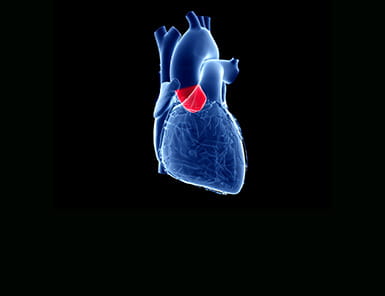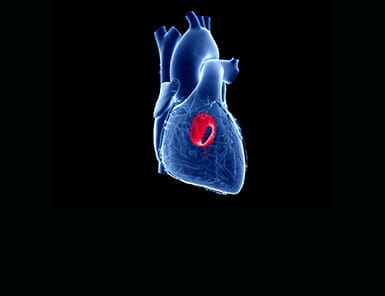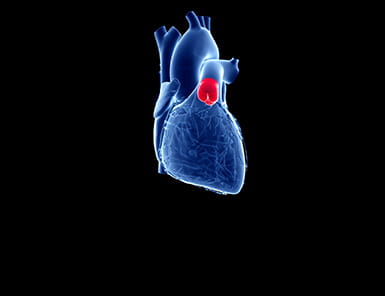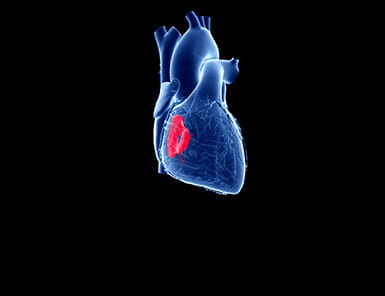
Excellence in Heart Valve Disease Diagnosis and Treatment at University Hospitals
University Hospitals Harrington Heart & Vascular Institute specialists are nationally recognized for excellence in heart valve disease diagnosis and treatment. We use a team approach to ensure heart valve disease is identified as early as possible and deliver the latest therapies for the best patient outcomes.
Your health is important. Get expert care.
Offering in-person, video and telephone visits. Call 216-844-3800 today to see which option is right for you.
Find a Doctor
As a leader in heart valve clinical trials available only in select U.S. programs, our specialists are able to offer the latest treatment options to a larger number of patients. With clinical expertise and strong patient education, our goal is to minimize or resolve heart valve issues and prevent these conditions from causing other serious problems such as stroke, arrhythmias, hypertension and heart failure.
In many cases, medication and lifestyle changes will reduce the effects of heart valve disease. However, if those therapies do not work, minimally invasive or open surgical heart valve repair or replacement may be necessary. Our team has the expertise to diagnose and treat even the most complex heart valve condition.
What is Valve and Structural Heart Disease?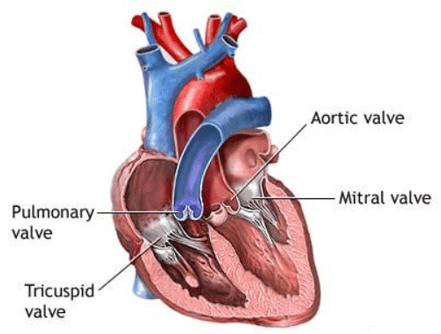
Heart valve disease occurs when one or more of the four valves in your heart cannot function properly. The heart’s valves assist in controlling the flow of blood through the chambers of the heart. When heart valve disease is present, a valve may be unable to close properly or open completely. This can force your heart to work harder every time it beats. Our team treats all types of heart and vascular conditions, including the full range of heart valve diseases:
Identifying Heart Valve Disease with Comprehensive Diagnostic Tests
The symptoms of heart valve disease are often confused with conditions such as stress or the effects of physical inactivity or aging. If you experience any symptoms or have a heart murmur, our heart specialists may use one or a few diagnostic tests to determine whether heart valve disease is present.
Heart Valve Disease Treatment to Protect Valves and Reduce Symptoms
The main goals of treating heart valve disease include protecting the valves from further damage, reducing symptoms and repairing or replacing valves for long-term heart health. Our heart specialists often recommend a combination of treatments depending on which valve is affected.

Find a Heart Valve Disease Specialist
If you have questions about heart valve disease or concerns about symptoms affecting your heart function, schedule an appointment with one of our team members.
What Causes Valve and Structural Heart Disease?
Valve and structural heart disease can develop before birth, (congenital), be acquired during your lifetime or result from an infection. Causes include:
- Changes or damage in the heart valve structure or weakening of the valve tissue due to aging, coronary artery disease, heart attack, high blood pressure, untreated infection or injury
- Calcification accumulating on the valves
- Congenital birth defects
- Radiation received as treatment for childhood cancer
- Related illnesses and conditions including infective endocarditis, syphilis and rheumatic fever
- Myxomatous degeneration, an inherited connective tissue disorder that weakens the heart valve tissue
Can Structural and Valve Heart Disease Be Prevented?
Valvular disease has become an increasing problem in recent years. It is more common among older people because as we age, our heart valves can become lined with calcium deposits that cause the valve flaps to thicken and become stiffer.
You’re also at higher risk for valve or structural heart disease if you have risk factors for coronary heart disease, including high cholesterol, high blood pressure, smoking, insulin resistance, diabetes, being overweight or obese, lack of physical activity, and a family history of early heart disease.
Heart-healthy eating, physical activity and other heart-healthy lifestyle changes can make a significant impact on your heart health.
Frequently Asked Heart Surgery Questions
- I need a new heart valve. What kind should I get?
-
There are many different valves that heart surgeons use to replace a valve that may be faulty. These include pig valves, cow valves, mechanical valves, or valves from another human being. The mechanical valve is good for younger patients because it'll last longer, but you will need to be on a blood thinner such as warfarin (Coumadin) for the rest of your life. The problem with tissue (pig, cow or human) valves is durability; they usually last 10 – 15 years and can sometimes last up to 20 – 25 years. However, you don’t need to be on a blood thinner with a tissue valve. It's an important discussion to have with your surgeon because there are pros and cons to each type of valve and it needs to fit your lifestyle and what's important to you.
- How long does a heart valve replacement last?
-
It depends on what kind of valve your surgeon uses. There are two types of valves, mechanical and tissue. Mechanical valves tend to last for the rest of your life. It is very rare for them to break down. Tissue valves, however, do have a life expectancy on average of 12 to 15 years. The tissue valves tend to last a little bit longer in older patients because they may be less active, so there’s less wear and tear on the valve. In these cases, they may last 20 years or more. However, if you’re younger and still very physically active, the valve may wear out sooner. At that time, you can discuss with your surgeon your options for repair.
- Can a heart valve be repaired instead of replaced?
-
Yes, but it depends on the type of valve and the disease state of that valve. There are two major valves that require heart surgery, the aortic valve and the mitral valve. The aortic valve typically becomes very calcified. The opening narrows and blood can’t flow through. That valve needs to be replaced either through transcatheter aortic valve replacement (TAVR), in which the valve is replaced through the groin, or through a standard aortic valve replacement, when replacement is done through an incision on your chest. The other valve that gets diseased is the mitral valve. This valve tends to leak but it doesn't get blocked like the aortic valve. Typically, 90 to 95 percent of those valves can be repaired. Talk to your cardiac surgeon or cardiologist to find out whether your valve can be repaired or replaced.
Make an Appointment
Your health is important. Get expert care.
Offering in-person and virtual visits.
Find a heart valve specialistLearn more about virtual visit



